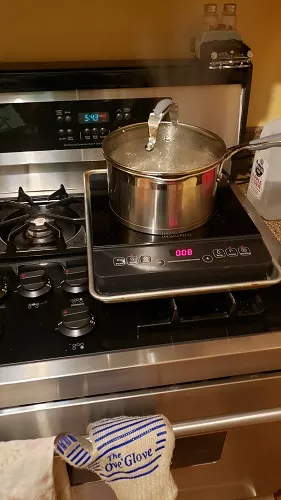
Are you still cooking with methane gas? If you’ve heard recent media coverage about health risks associated with gas stoves—or blowback from fossil fuel supporters—you might wonder if that’s a good idea.
Here’s the truth: When burning, methane gas stoves release carbon monoxide, nitrogen dioxide, other pollutants and carcinogens into homes. (The situation is even worse in homes without good ventilation.)
Gas stove emissions have been linked to increased risk of respiratory health issues, especially in children, the elderly, and people with underlying medical issues.
About 12% of pediatric asthma cases can be attributed to exposure to gas stoves, according to a study published in the International Journal of Environmental Research and Public Health.
Gas stoves leak methane, even when turned off. In fact, a 2021 Stanford study concluded that the collective emissions from gas stoves have the same carbon impact as 500,000 cars.
Induction cooktops are a safer, faster, healthier alternative to gas stoves—and better for the planet, too. They work by transferring heat directly to the pot or pan through a magnetic field, instead of by heating electric coils or burning fossil fuel.
Induction cooktops don’t work with all types of cookware. However, they work well with steel, copper, and cast-iron pans and pots. It’s easy to test the cookware you already have: If a magnet will stick to the bottom, you are all set to start cooking with induction.
You can get started with a simple countertop model like the one pictured for under $100. Jay Futterman, chair of the Woods & Wetlands Conservation Committee, and his family use this induction cooktop to prepare all of their meals!
To learn more about clean energy and other environmental issues, please attend the February 15 Conservation Committee open house. Register Here
Photo: Jay Fetterman